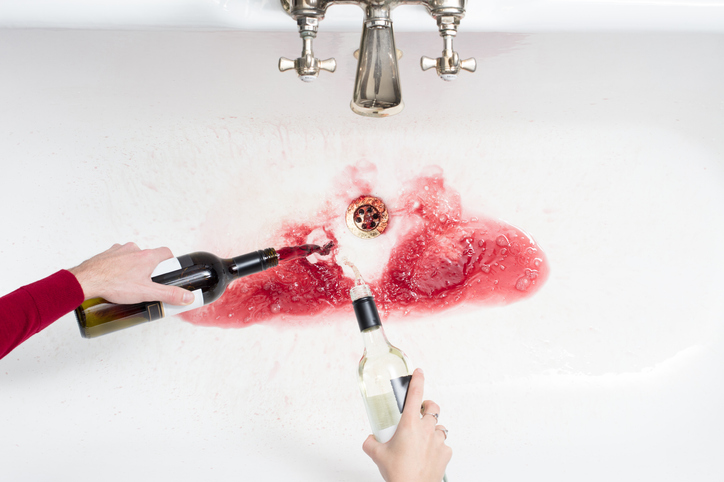This year, more Americans than ever are taking part in Dry January* or “Dryanuary.” During this month-long event, people choose to stop drinking alcohol after holiday celebrations with the hopes that it will help them reduce their alcohol intake throughout the year.
Though a month without alcohol obviously has positive effects on your wallet, it also leads to unexpected, positive changes in your body. Without alcohol, you may notice:
When You Stop Drinking You Weigh Less
Alcoholic beverages tend to be chock full of unnecessary calories. The average beer has 154 calories while the average margarita soars well over 300 calories. Studies show that men consume 433 calories more per day when they drink. Women consume about 300 calories more. Without these extra calories, you may find you lose weight without even trying.
You Sleep Better Without Alcohol
As a depressant drug, alcohol can make you sleepy, and many people swear by a small drink to help them fall asleep. Though you may fall asleep quickly, the quality of your sleep plummets. Alcohol disrupts brain activity, preventing you from achieving deep, restful sleep. Without alcohol, you may feel more refreshed and energetic in the morning.
You Are Less Hungry When You Stop Drinking
Alcohol increases your sensitivity to smell and excites the pleasure centers of your brain. These two effects cause food to seem more appetizing, leading you to eat more during a meal. One study showed women who received an alcohol injection equivalent to two drinks
ate almost 30 percent more than women who had saline injections.
Without Alcohol Your Skin Looks Fresher
As a diuretic, alcohol flushes water from your body, leaving you dehydrated. As a double-whammy, alcohol also reduces the amount of a hormone in your body that lets you absorb water.
Without alcohol in your system, your body can better hold onto fluids, helping your skin stay moist and healthy. Skin may have a better glow and appear fuller. Dandruff, eczema and rashes may all improve after a few days without booze.
Your Blood Sugar Improves
Alcohol hurts your body’s ability to regulate blood sugar levels. This can lead to high blood sugar and even type 2 diabetes after many years of drinking. When you quit drinking, your blood sugar can return to more normal levels, dropping by as much as 16 percent.
You Become More Fertile
Alcohol even affects your ability to become pregnant. The more you drink, the lower your chances of conception. Even a small amount of alcohol, less than five drinks per week, can reduce a woman’s ability to conceive. Alcohol does not seem to affect men’s ability to have children.
Your Long-Term Health Improves…Somewhat
Drinking less can result in long-term health benefits, too. According to the National Cancer Institute, alcohol intake can increase your risk of many types of cancer, including liver, breast and colorectal cancer. Without alcohol, your risk for these cancers will begin to fall slightly.
However, some studies suggest that moderate drinking, such as one five-ounce glass of wine per day, may actually help your heart health. Any more than a glass, though, and your heart health is hurt.
You Feel Happier
Depressant drugs do just that—they depress you. Alcohol can affect your mood, making you less happy when you aren’t drinking. Though the first few days without alcohol may be a bit more melancholy than usual, by the end of the first month you’ll find you feel happier.
For light or moderate drinkers, choosing to eliminate alcohol may be easy and pose little risk to their health. However, if you are a heavy drinker, having multiple drinks per day, you should consult your physician before giving up alcohol.



